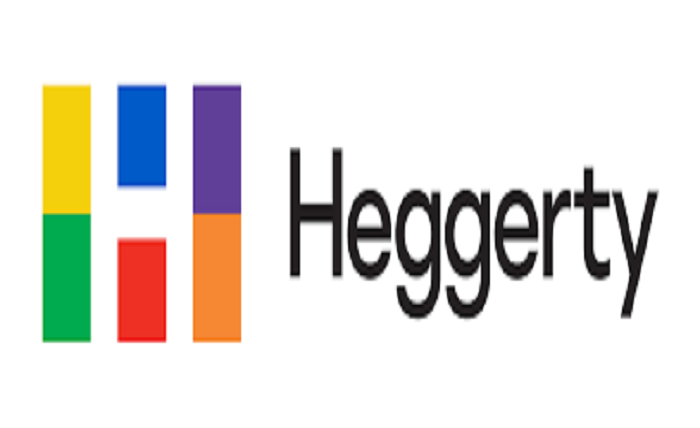Heggerty: A Comprehensive Guide to Phonemic Awareness Instruction

Phonemic awareness is an essential component of early literacy, and one of the most effective programs for building these skills is Heggerty. With a structured and systematic approach, Heggerty helps children develop the foundational skills they need to become successful readers. In this comprehensive guide, we will explore what Heggerty is, its benefits, how to use it in the classroom, and why educators trust it for early literacy instruction.
What is Heggerty?
Heggerty is an early literacy program focused on developing students’ phonemic awareness—a critical skill for reading success. Created by Dr. Michael secret class , the curriculum provides daily lessons that incorporate a wide range of auditory activities. These lessons are carefully designed to help students identify, blend, segment, and manipulate sounds in words. By offering a consistent and effective structure, Heggerty helps teachers address gaps in phonemic awareness, ultimately improving students’ reading abilities.
The Importance of Phonemic Awareness
Phonemic awareness, a central focus of the Heggerty program, involves the ability to hear, identify, and manipulate individual sounds (phonemes) in spoken words. This skill is crucial because it lays the groundwork for learning how to read and spell. Children who develop strong phonemic awareness are better prepared for decoding words and comprehending texts. Heggerty offers explicit instruction that targets these skills, ensuring that all students, regardless of their reading level, get the support they need.
Benefits of Using Heggerty
Using Heggerty in the classroom offers numerous benefits for both educators and students. First, the Heggerty program provides a structured approach that makes lesson planning straightforward for teachers. Lessons are short and engaging, which is perfect for young learners with limited attention spans. Additionally, Heggerty supports differentiation, allowing educators to meet the diverse needs of their students. By integrating Heggerty, students improve their phonemic awareness, leading to better reading outcomes and increased confidence in literacy skills.
How to Implement Heggerty in the Classroom
Implementing Heggerty in the classroom involves daily lessons that last about 10 to 12 minutes. Teachers use scripted activities, which require no additional preparation, making it easy to integrate Heggerty into the existing literacy block. These lessons focus on essential phonemic awareness skills, such as rhyming, isolating sounds, blending, and segmenting. By incorporating Heggerty consistently, teachers can ensure that all students have the opportunity to master these critical literacy skills, which serve as a foundation for reading success.
Heggerty’s Structure and Lesson Components
Heggerty lessons are broken down into several components that focus on different aspects of phonemic awareness. Each lesson includes activities such as identifying onsets and rimes, blending phonemes, and segmenting sounds. The repetition and consistency of the Heggerty curriculum ensure that students can practice and master each component over time. By including multiple activities that address different aspects of phonemic awareness, Heggerty helps students develop well-rounded skills that are essential for early reading.
Heggerty for Different Grade Levels
Heggerty offers programs for multiple grade levels, including pre-kindergarten, kindergarten, first grade, and beyond. Each level is specifically designed to target the developmental needs of students at that age. For younger students, Heggerty focuses on foundational skills such as rhyming and recognizing syllables. As students progress, the lessons become more challenging, helping them master advanced phonemic awareness skills. This progression ensures that students receive instruction that is appropriate for their level, making Heggerty an effective tool for all early learners.
Why Teachers Trust Heggerty
Teachers trust Heggerty because it is a research-based, evidence-backed curriculum that has consistently shown positive results. The explicit and systematic approach makes it easy for teachers to deliver high-quality instruction, and the scripted lessons provide a clear pathway to help students achieve phonemic awareness. Heggerty’s effectiveness has been demonstrated in classrooms across the country, and educators appreciate its focus on foundational literacy skills that directly impact reading achievement. The trust in Heggerty is built upon its proven success in helping students become confident readers.
Heggerty and Literacy Development
Heggerty plays a significant role in supporting literacy development beyond just phonemic awareness. By establishing a strong foundation, Heggerty prepares students to successfully decode words, a key skill for fluent reading. When students have strong phonemic awareness skills, they are better able to sound out unfamiliar words, leading to improved reading comprehension. By using Heggerty to build these critical skills early on, students are more likely to become proficient readers who enjoy the reading process, rather than struggling with it.
How Heggerty Supports Struggling Readers
For struggling readers, Heggerty can provide the extra support needed to close literacy gaps. Phonemic awareness is often an area of difficulty for students who struggle with reading, and Heggerty’s systematic approach can help fill in those gaps. By offering daily, targeted practice, Heggerty helps struggling readers develop the skills they need to decode words more effectively. Teachers can use Heggerty alongside other interventions to create a comprehensive plan for supporting students who need extra help with their reading skills.
Tips for Making the Most of Heggerty
To get the most out of Heggerty, teachers should focus on consistency and engagement. Implementing Heggerty lessons every day is crucial to ensure that students have ample opportunity to practice and master phonemic awareness skills. Teachers can also make lessons more engaging by incorporating movement, visuals, and other sensory activities to help keep students focused and interested. By making Heggerty a fun and consistent part of the literacy block, teachers can maximize the benefits of this program and help their students build a strong foundation for reading.
Conclusion
Heggerty is an invaluable resource for developing phonemic awareness in young learners, providing a structured and effective approach to early literacy instruction. Its benefits extend beyond phonemic awareness, supporting overall reading development and helping students become successful, confident readers. By implementing Heggerty consistently, educators can ensure that all students have the foundational skills needed for reading success. Whether you’re teaching pre-kindergarten or first grade, Heggerty provides a comprehensive solution for phonemic awareness instruction, making it an essential tool for educators dedicated to improving literacy outcomes.
FAQs
1. What is Heggerty, and how does it work?
Heggerty is a phonemic awareness program designed to help students develop the ability to hear, identify, and manipulate sounds in spoken words. It uses daily lessons to teach these skills systematically, which are essential for early reading development.
2. How long are Heggerty lessons?
Heggerty lessons typically last about 10 to 12 minutes and are designed to be done daily. These short sessions fit easily into a literacy block, providing consistent practice without overwhelming young learners.
3. Can Heggerty be used for struggling readers?
Yes, Heggerty is an excellent resource for struggling readers. The systematic approach provides targeted phonemic awareness instruction that helps students develop the skills they need to decode words more effectively, making it a helpful intervention tool.
4. What grade levels is Heggerty appropriate for?
Heggerty offers programs for pre-kindergarten, kindergarten, first grade, and beyond. Each level is tailored to the developmental needs of the students, ensuring that the instruction is age-appropriate and effective.
5. Why is phonemic awareness important in literacy development?
Phonemic awareness is crucial because it is the foundation of reading and spelling. Without strong phonemic awareness, students may struggle to decode words, which can hinder their reading comprehension and overall literacy development.




